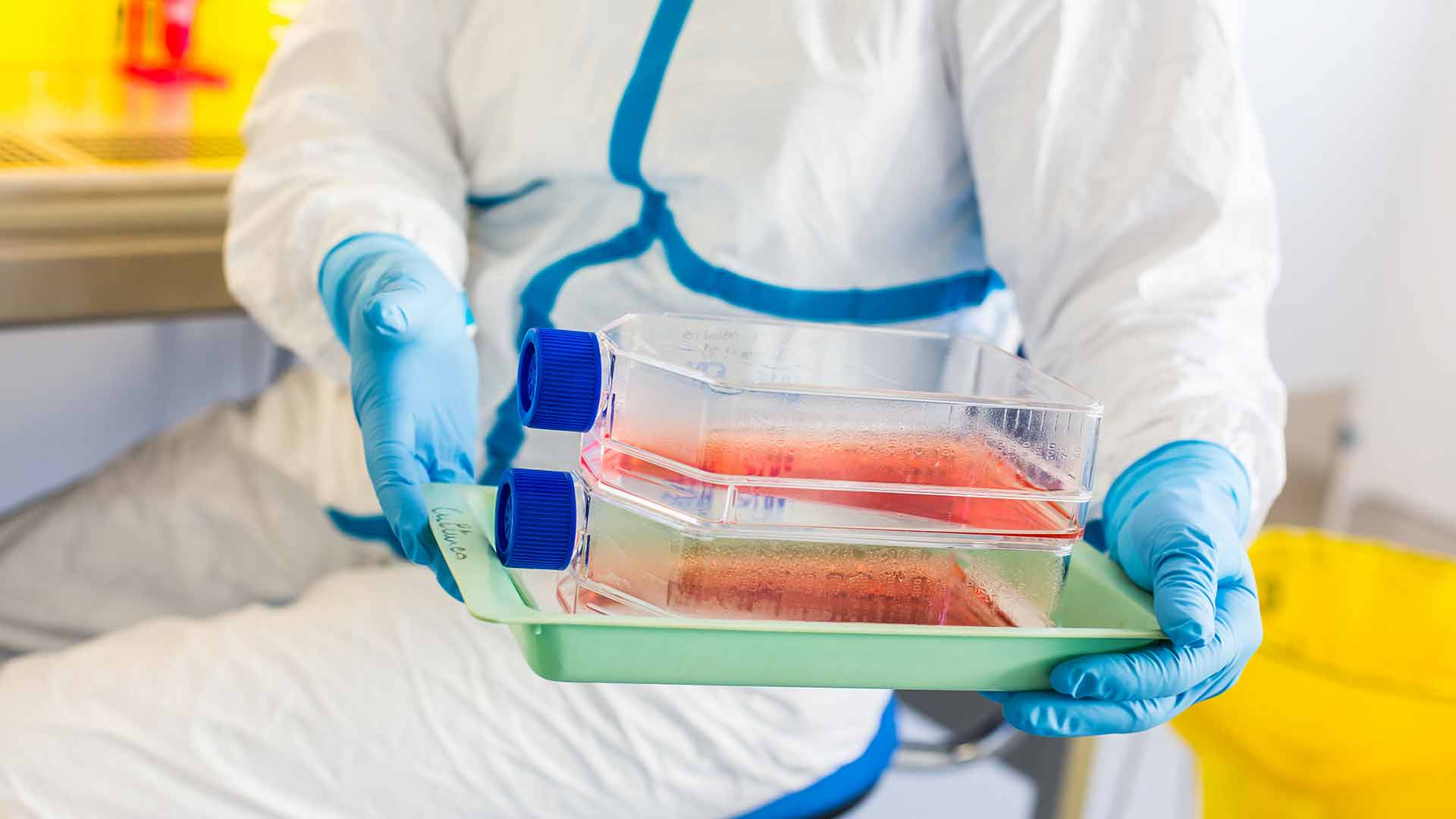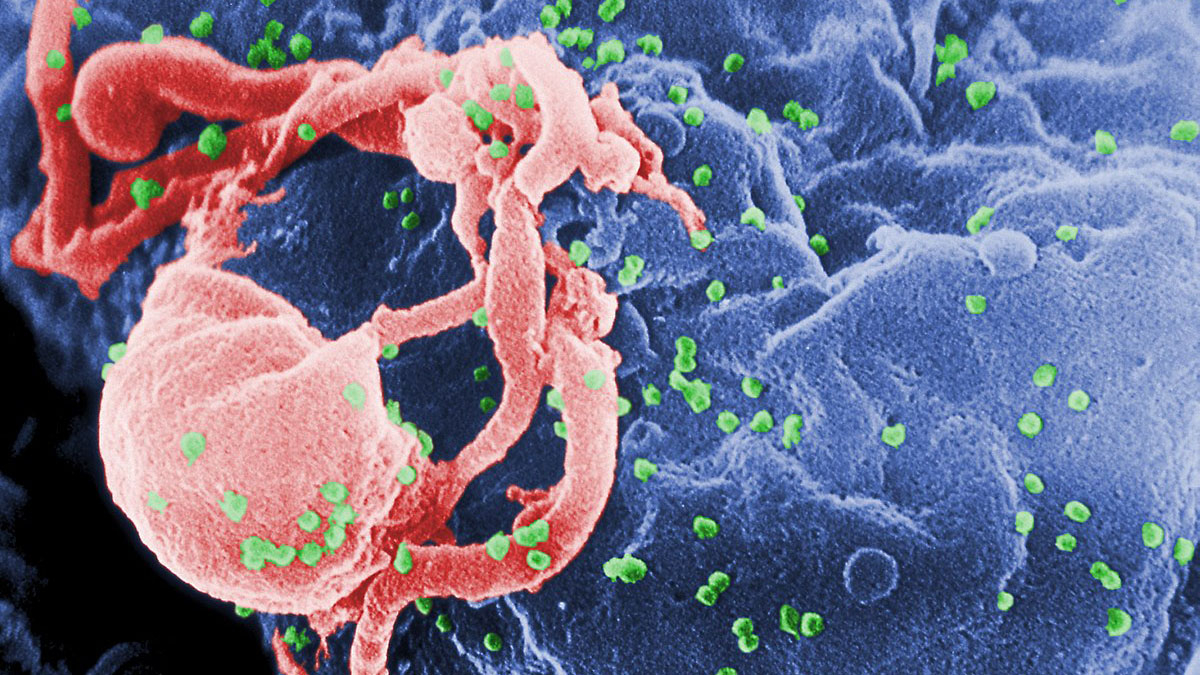
(Photo: VCG/BURGER/PHANIE/Corbis Creative)
(Photo: VCG/BURGER/PHANIE/Corbis Creative)
Three HIV vaccine trials are close to completion that could reveal a potential HIV vaccine by 2021, scientists say.
The vaccines -- HVTN 702, Imbokodo, and Mosaico -- are currently in the efficacy trial phase around the world which will determine if the drugs produce expected results under ideal circumstances.
Dr. Susan Buchbinder, a chair of the Imbokodo and Mosiaco trials told NBC News that this is "perhaps one of the most optimistic moments we have been in" in regards to HIV research.
"We have three vaccines currently being tested in efficacy trials, and it takes quite a bit to actually be promising enough in the earlier stages of trials to move you forward into an efficacy study," Buchbinder told NBC News.

Scanning electron micrograph of HIV-1 budding (in green) from cultured lymphocyte. This image has been colored to highlight important features. (Photo: U.S. CDC)
Scanning electron micrograph of HIV-1 budding (in green) from cultured lymphocyte. This image has been colored to highlight important features. (Photo: U.S. CDC)
The HVTN 702 study began in 2016 in South Africa and results are expected in 2020 or early 2021. It's based on an older treatment, RV144, that was deemed not effective for global distribution, even though it lowered the rate of HIV infections by 30%, NBC News reported.
It is the only vaccine to date that that has shown any efficacy agains the virus.
Buchbinder told NBC News that even a partially effective vaccine would be “a tremendous breakthrough,” and "would really have the power to change the trajectory of the epidemic.”
Dr. Anthony Fauci, the director of National Institute of Allergy and Infectious Diseases, also told NBC News he feels “even more strongly now” that a partially effective vaccine would be worth deploying.
“If one or more of these vaccines look good, have a 50-60 percent efficacy, I think that’s going to be the game changer for turning the epidemic around," Fauci said.
The Imbokodo trial started in 2017 in five southern African nations and results are expected in 2021. The trial tracks 2,600 women.
The Mosaico trial began in November 2019 and will cover 57 locations in the U.S., Latin America, and Europe. The trial will recruit 3,800 gay men and transgender people and is expected to be completed in 2023.
While there are proven drugs that prevent the spread of HIV, a vaccine that prevents the contraction of the virus has yet to be developed.
Researchers hope that day happens in the next few years.